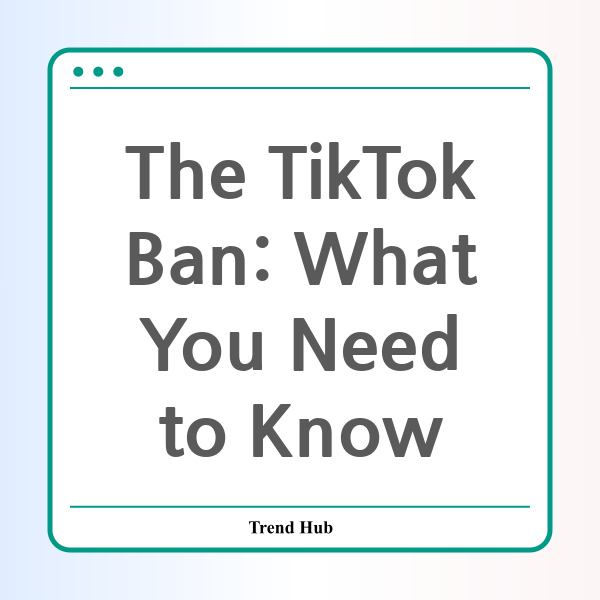* This website participates in the Amazon Affiliate Program and earns from qualifying purchases.

As the clock ticks down to a potential ban on TikTok in the United States, many users are left wondering: what does this mean for the future of the platform and its vast community? The Supreme Court is set to hear arguments that could either uphold or overturn a recently passed bipartisan law requiring TikTok’s Chinese parent company, ByteDance, to either sell the app or shut it down by next Sunday, January 19. This situation raises significant questions not only about our digital freedoms but also the livelihoods of countless content creators.
First and foremost, the implications of a TikTok ban extend beyond casual users. Many influencers and small business owners leverage the platform as a cornerstone of their marketing strategies. According to Greg Stoller, a Master Lecturer at Boston University, TikTok is not just a source of entertainment; it serves as a vital business tool for brand enhancement and business development. Many content creators depend on the revenue generated through TikTok to sustain their businesses or supplement their income.
The argument surrounding the TikTok ban is complex. On one hand, the government cites national security concerns, claiming that TikTok poses potential risks due to its Chinese ownership. On the other hand, TikTok is appealing the ban on the grounds that it violates First Amendment rights, stating that the app is a popular platform for personal expression. This ongoing legal battle highlights the tension between regulatory intentions and individual freedoms.
What can users do in the meantime? Experts like Stoller advise content creators to prepare for the unexpected. "Backup your content and be ready to transition your brand to a different platform at a moment's notice," he urges. This preparation is crucial given the uncertainty surrounding the future of TikTok. Furthermore, rather than waiting in limbo, users should treat their digital strategies as business as usual, regardless of the impending legal decisions.
The political landscape adds another layer of complexity to this situation. With both Democrats and Republicans supporting the ban, this is not a typical partisan issue. Interestingly, former President Trump, who previously advocated for a TikTok ban, has filed an amicus brief urging the Supreme Court to pause the law. This unusual intervention raises eyebrows and invites speculation about the potential outcomes of the case.
As the Supreme Court prepares to deliberate, the ramifications of their decision could reshape the social media landscape in the U.S. If the ban is upheld, influencers and small businesses could find themselves scrambling to adapt to a new reality without one of the most popular platforms in America. Conversely, if the court sides with TikTok, it could set a precedent for how social media companies navigate national security concerns while continuing to provide spaces for free expression.
In conclusion, the upcoming days are crucial for the future of TikTok. As users await the court's decision, staying informed and prepared is essential. Whether through alternative platforms or contingency plans, it’s vital to keep your digital presence strong and adaptable. The future of social media—and potentially, the way we express ourselves online—hangs in the balance as the Supreme Court weighs in on this pressing issue.
* This website participates in the Amazon Affiliate Program and earns from qualifying purchases.